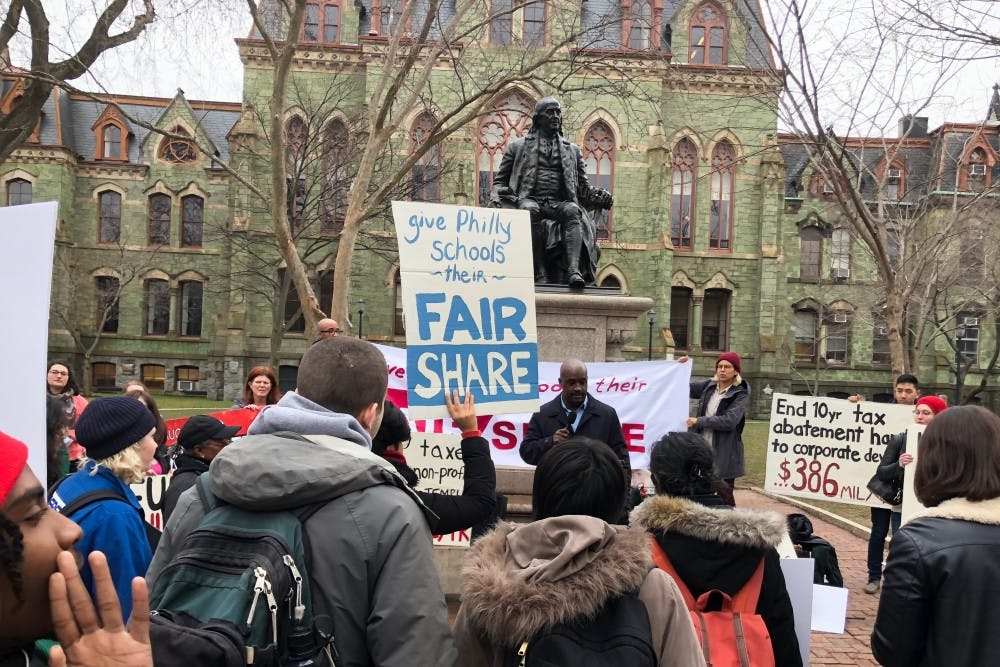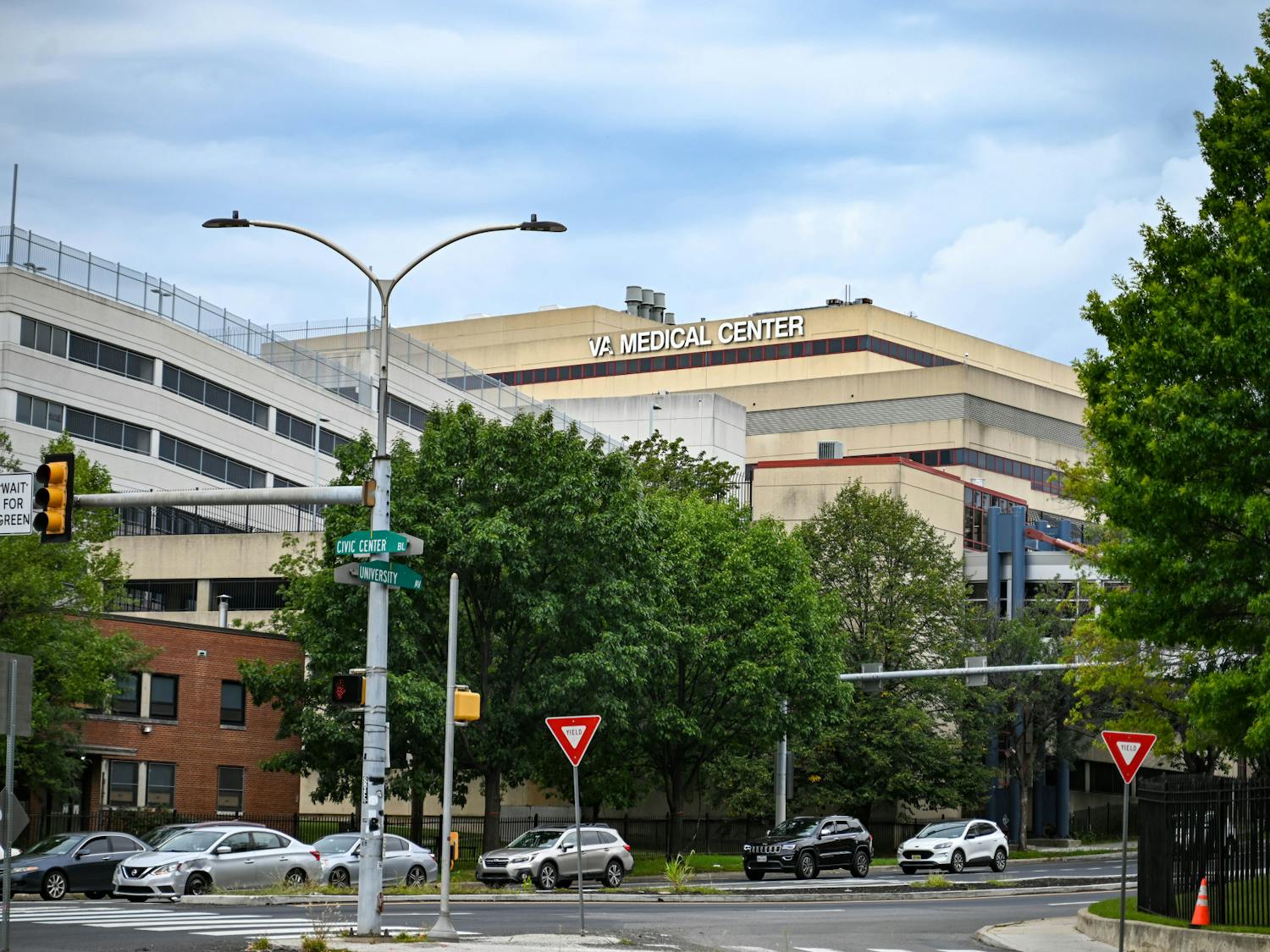In the wake of renewed student petitions demanding that Penn pay PILOTs, or voluntary payments in lieu of property taxes, Penn is standing its ground and defending its position against the practice.
A recent petition, titled "University of Pennsylvania: Pay Your Fair Share to the Philly Schools," calls on Penn to willingly make payments to local governments in lieu of any property tax, despite being exempt as a nonprofit organization. The petition, which was circulated by Penn students and created by local coalition Our City Our Schools, demands that Penn’s Board of Trustees “contribute 50% of the value of forgone taxes in property in Philadelphia." The petition has garnered more than 1,000 signatures.
Student groups Fossil Free Penn, Penn Student Power, and Student Labor Action Project at Penn also began circulating a second petition, which has gained 74 signatures, titled "PROSPECTIVE STUDENTS SAY: DO BETTER, PENN!" FFP Campaign Coordinator and College junior Jacob Hershman said this petition exists to specifically inform students who are considering enrolling at Penn.
In response to the student petitions, Penn defended its long-held stance that its current contributions to the city are sufficient and more effective than PILOTs.
"We believe that the depth of Penn’s financial commitment and the breadth of programs we support has proven to be far more impactful than PILOTs have been in any city where they have been attempted," Vice President of University Communications Stephen MacCarthy wrote in an email to The Daily Pennsylvanian.
PILOT payments can be directed to Philadelphia's school district, which hosts the eighth-largest student enrollment in the nation. MacCarthy wrote that Penn schools are focused on community engagement with "over 500 activities going on in 248 schools in every catchment area throughout the District.”
The University is also the city's largest employer with 40,000 faculty and staff, MacCarthy wrote.
“As the largest private employer in the City of Philadelphia, Penn and its affiliates contribute more to the City’s general fund through a multitude of tax payments than any other City based employer," he added.
RELATED:
Penn Student Power and local nonprofits call on the University to fund PILOTs
Philadelphia contributes heavily to nationwide gentrification, new study finds
College freshman Ashley Fuchs, who participated in the latest PILOTs protest in March, voiced support for Penn's local programs, but said it was not an exception for the University to justify not paying PILOTs.
“It is the veil of community engagement that Penn places upon its behavior and location in Philadelphia that is absolutely negated by its failure to contribute to the city and the people who live in it," Hershman said.
Penn's programs geared toward providing resources to local Philadelphia schools are "ineffective," said College junior Erik Vargas, who is also a member of SLAP.
Vargas said he thinks students typically stay on academic programs for one semester and he feels that most programs lack adequate structure. He highlighted his experience as an English as a second language tutor, as part of a campus mentorship program. Vargas said he speaks Spanish, but was assigned to a student who spoke French.
“It would be so much better if taxes were being paid and professionals could be hired,” Vargas said. “They could have someone who actually can develop a curriculum, sees the students every day.”
This is not the first time Our City Our Schools has petitioned Penn to pay PILOTs. In March 2018, the nonprofit joined SLAP in front of College Hall, which disrupted a University Council meeting.
Protests advocating for Penn to pay PILOTs have been ongoing since 2014, when members of Students Organizing for Unity and Liberation, along with members of SLAP, staged a protest at President Amy Gutmann’s annual holiday party.

Students at a City Council vote on PILOTs in 2015. (File Photo)
From 1995 to 2000, Penn was a part of a PILOTs agreement. But after 2000, the deal was not renewed. Of the entire Ivy League, only Penn and Columbia University do not pay PILOTs to their local governments.
“It just seems that other elite institutions have volunteer programs as well," Fuchs said, "but they’re not using the greatness of one program to justify not doing anything else in any other sphere.”
Undergraduate Assembly President and College junior Natasha Menon said she wants to work with administrators to create an open dialogue about the PILOTs debate at Penn.
“Penn has displaced local communities as it's expanded, and that does create an impact on the community in terms of disrupting local neighborhoods," Menon said. "Penn has made efforts to try and mitigate those effects, but I think we can always be doing more.”
Wharton senior Michelle Lyu, who is a member of SLAP and PSP, wrote in an email to the DP that students should feel personally impacted by Penn's decision to opt out of paying property taxes.
"Philadelphia public school students are suffering, even dying from lack of necessary resources just blocks away from our well-groomed, opulent institution that drips with material wealth," Lyu wrote. "This is a painful reality that should move us, as sincere and empathetic humans and Penn students, deeply. It’s on us."









